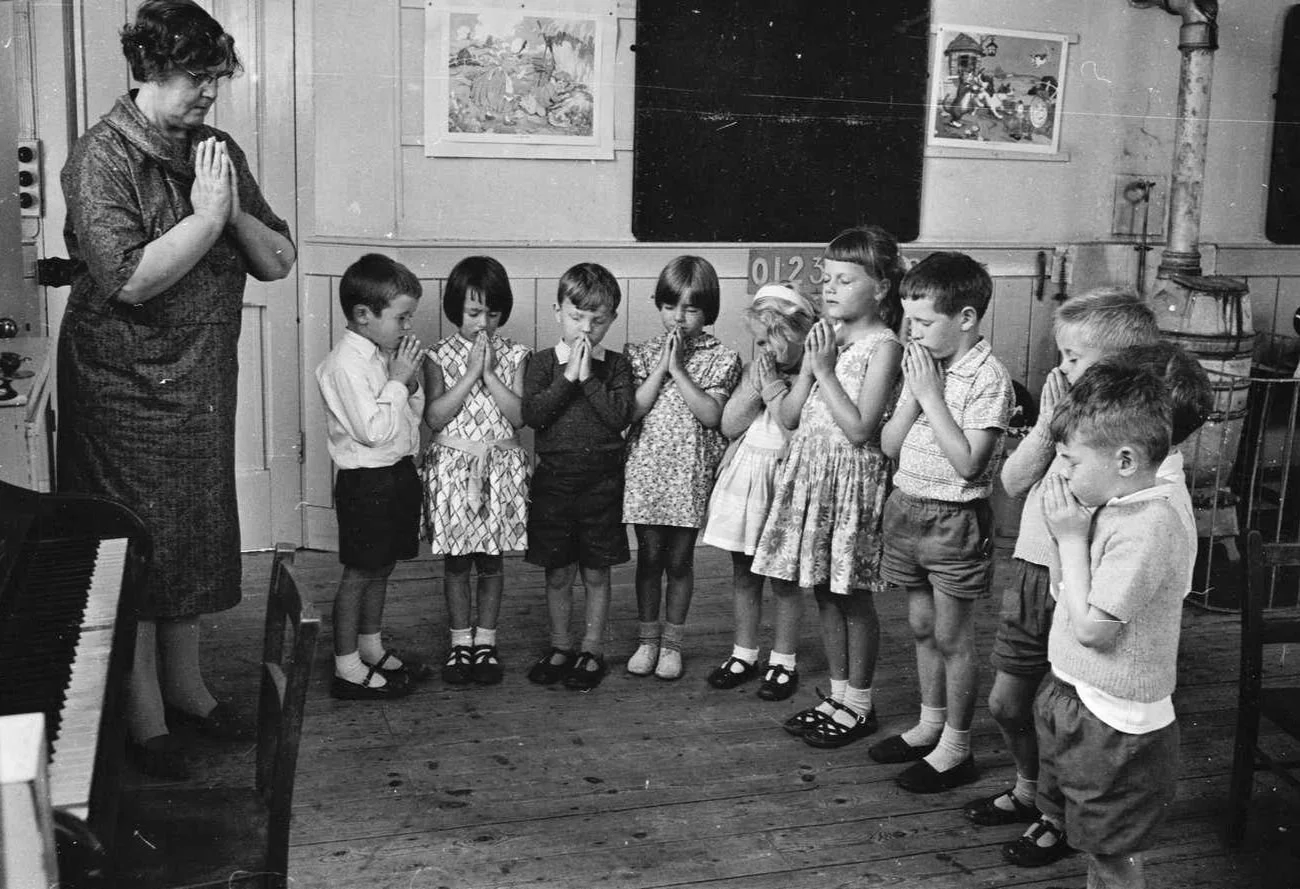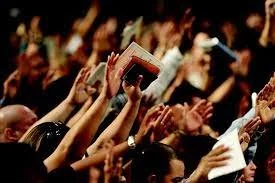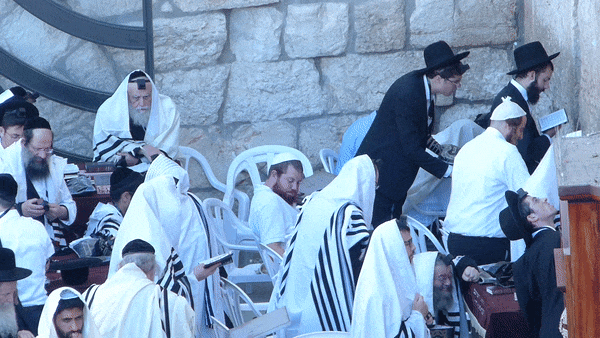By The Landlord
“We music fans go to shows for transcendence; it's like being called to prayer.” – Ezra Furman
“Prayer does not use up artificial energy, doesn't burn up any fossil fuel, doesn't pollute. Neither does song, neither does love, neither does the dance.” – Margaret Mead
“I have so much to do that I shall spend the first three hours in prayer.” – Martin Luther
“May God break my heart so completely that the whole world falls in.” – Mother Teresa
“Prayer is the key of the morning and the bolt of the evening.” – Mahatma Gandhi
“The function of prayer is not to influence God, but rather to change the nature of the one who prays.” – Soren Kierkegaard
“I am unable to believe in a God susceptible to prayer. I simply haven't the nerve to imagine a being, a force, a cause which keeps the planets revolving in their orbits, and then suddenly stops in order to give me a bicycle with three speeds.” – Quentin Crisp
“God of Rock, thank you for this chance to kick ass. We are your humble servants. Please give us the power to blow people's minds with our high voltage rock. In your name, we pray.” - Jack Black as Dewey Finn, School of Rock
“Poetry and prayer are very similar.” – Carol Ann Duffy
“I talk to God but the sky is empty.” – Sylvia Plath
“Dear Jesus, do something.” – Vladimir Nabokov, Pale Fire
Confession time. Since I was first taken to church as a small child, despite various attempts, I’ve never really been sure what it means to pray. That first time was a strange and surreal experience. I vividly remember noticing how other people shut their eyes, but then, after briefly copying them, I could not resist opening mine again, and keenly looking around, staring in fascination at every face, watching the slow movement of mumbling lips, and how oddly vulnerable everybody suddenly seemed.
My first thought was, is this just a trick to distract everyone, or some kind of hide-and-seek game set up by the vicar? Is he going to crouch under the pulpit or behind the altar? Or maybe it’s a longer game – ‘to find God’? Or just a clever way to keep the congregation under control? Definitely though, I quickly worked out on Monday’s morning school assembly, that is was a shameless attempt to keep children quiet.
But of course there’s much more going on here. Prayer seems to be a form of meditation, a way of aligning your mind, as well as aligning groups of people on the same path and train of thought and behaviour, through movement and language, and sometimes music. But what’s really going in each person’s mind must surely vary, wonder, and wander, considerably. Perhaps some are hoping or asking for something, or others simply seek calm and escape. So then, it’s time to explore what all this means, and pray we can find a path to that via the sacred spirit of song and the holy portal of the playlist.
Song suggestions then should use the idea of prayer as a central theme, whether in style or lyric, metaphor or motivation, and some might perhaps be quoting or parodying well-known texts, such as the Lord’s Prayer. But those that just casually include phrases such as ‘hope and pray’ might not get an answer from the playlist god.
Prayer is defined as an invocation, supplication or attempt to communicate, as an act of worship, with a deity, or perhaps even deified ancestor. It might be focused via an object, but it’s always directed towards a being or entity that’s elsewhere, a form of spiritual wireless mobile communication long before the idols now worshipped in the form of Nokia, Samsung or Apple.
There’s evidence that prayer has been part of human culture for thousands of years, with Bronze Age figures shown kneeling in supplication. Perhaps humans have prayed long before this, probably to the sun, as ongoing response to a difficult, dangerous and confusing world. Not much has changed there.
As for written relics, the Kesh temple hymn as far back as the 26th century BC, is liturgy addressed to deities. Egyptian Pyramid Texts of about the same period similarly contains spells or incantations addressed to the gods.
Prayer through history has appeared in many styles, some of which is an act of theatre, of performance. For the Ancient Romans, for example, with their many gods, it could involve sacrifices. In Australian Aboriginal culture, shaman offered lengthy prayers to the "Great Wit”. In Pagan Norse culture, prayer to the gods involved long poetry.
In the past and modern day for many Christians, it’s a silent kneeling with eyes shut, for other more demonstrative versions, such as Baptist Church, prayer is highly expressive, often involving stand up, moving around, speak, shouting or singing. Other forms are more ordered. Muslims kneel en masse in the direction of Mecca, the call to prayer a distinctive, musical sound. Orthodox Jews often pray rocking backwards and forwards. Hinduism involves a wide range of meditation and recitation of timeless verses, while for Tibetan Buddhists, yoga is congruent with the act of prayer.
Prayer comes in many forms
Prayer is variously private or expressive, as variable as cultures and people, so to get more of an idea what it all means, let’s hear from a congregation of Bar visitors.
Divine inspiration?
There are several prominent artists already here eager to reveal how prayer, in their experience is a positive, inspirational act. Some are conventionally religious, others not. The great gospel singer Mahalia Jackson declares that: “Faith and prayer are the vitamins of the soul; man cannot live in health without them.”
Mahalia Jackson
Alicia Keys is also open to the idea of prayer’s positivity. “I feel the presence of a higher power. I believe that what you give is what you get. It's universal law. I believe in the power of prayer and of words. I've learned that when you predict that negative things will happen, they do.”
Aaron Neville, also divine in voice, declares that: “Singing is a prayer to me.” But he also goes into more specific example. “My favourite prayer is Footprints in the Sand. You know that prayer? I know the times that he carried me, you know? I kind of wore him out.”
Mavis Staples reveals that prayer offers her energy for performance. “When I come out of my dressing room, I go to my heart and say a little prayer and go out on stage. There I am, coming to lift you up and to motivate you. I want to bring joy. It's gospel, and gospel is the truth. It's what I do. I'm going to bring you the truth and lift up your spirit.”
Another huge figure of her era, Martha Reeves, reveals how “I pray for miracles. And I have always found prayer to bring quick results.”
Traversing genres, Ravi Shankar is also here, and also sees a parallel between prayer and music. “The music that I have learned and want to give is like worshipping God. It's absolutely like a prayer.”
John Tavener, best known for his adaption of Christian prayers into music, reveals a candid sense of guilt and responsibility: “I used to think there was something dirty about being paid for something which is a sacred thing to do. I can't disconnect the act of writing music from the act of prayer. If anyone tries to stop me working, it feels like someone is trying to stop me from taking communion.”
Jeff Buckley is also here with this, and talks about one of his best known songs is a particular form relevant to this topic. “’Grace’ is basically a death prayer. Not something of sorrow, but of just casting away any fear of death. No relief will come - you really just have to stew in your life until it's time to go. But sometimes, somebody else's faith in you can do wonders.”
But we also have visitors from other creative genres who define parallels between prayer and the creative process. “Writing is prayer,” says Franz Kafka.
Fashion’s Mary Quant sees another parallel. “The Lord's Prayer is the most perfect piece of poetry. I always feel at peace and moved when I recite it.”
Henri Matisse reveals a certain agnostism, but makes this leap of faith when it comes to art: “I don't know whether I believe in God or not. I think, really, I'm some sort of Buddhist. But the essential thing is to put oneself in a frame of mind which is close to that of prayer.”
Leonard Cohen is also in the house, making another inspirational link with language. “Prayer is translation. A man translates himself into a child asking for all there is in a language he has barely mastered.”
Two-way communication?
Another recurring pattern of prayer is that for some it is a form of conversation. But to whom are you talking. “Prayer is simply a two-way conversation between you and God,” says Billy Graham, without any apparent self-doubt.
“Yes, prayer is simply talking to God like a friend and should be the easiest thing we do each day,” declares Missouri Christian ministry mogul Joyce Meyer.
There are plenty of other such communications about this out there, but let’s seek out a greater nuance. Mischievously, but also poignantly, the actress Lily Tomlin asks: “Why is it that when we talk to God we’re said to be praying, but when God talks to us we’re schizophrenic?”
Are there any characters portrayed in song that do this. It also slightly harks back to last week’s topic about id, ego and superego, but when it comes to praying, who might one be talking to? Mahatma Gandhi gives a personal account: “The inner voice is something which cannot be described in words. But sometimes we have a positive feeling that something in us prompts us to do a certain thing. The time when I learnt to recognise this voice was, I may say, the time when I started praying regularly.”
Praying then doesn’t have to be linked to a formal religion. American psychologist and philosopher Raymond Moody admits: “I have never been religious. I talk to God every day, but He's never said a word to me about religion! I think the most powerful prayer is surrender.”
Any requests? Supplication in song
Prayer often seems to be about seeking something - redemption, forgiveness, or perhaps more earthly gains, such as that Christmas present you’ve always been hinting at. The 19th-century Irish scholar and member of the Dominican order for 58 years Vincent McNabb tells us that “St. Thomas is right. The essential prayer is the prayer of petition.”
People often pray when they lack or need something, but also in the house we have a couple of writers eager to invert that idea. “Forgive me my nonsense as I also forgive the nonsense of those who think they talk sense,” writes Robert Frost.
And in Margaret Atwood, with a copy of Cat’s Eye, warns us to: “Never pray for justice, because you might get some.”
Prayer for self-improvement?
Gandhi is still around, and hearing this, wants to clarify. “Prayer is not asking. It is a longing of the soul. It is daily admission of one's weakness. It is better in prayer to have a heart without words than words without a heart.”
So here then emerges another side or prayer - that of self-improvement, and something that links back to idea of meditation of self-aligning and fortitude.
“The wise man in the storm prays God not for safety from danger but for deliverance from fear,” says Ralph Waldo Emerson.
“Who rises from prayer a better man, his prayer is answered,” adds the great novelist George Meredith.
“Be not forgetful of prayer. Every time you pray, if your prayer is sincere, there will be new feeling and new meaning in it, which will give you fresh courage, and you will understand that prayer is an education,” wrote Fyodor Dostoevsky in The Brothers Karamazov.
And where else in the world can you have such literary figures hanging out with martial arts icon Bruce Lee? Nowhere, but who on his path to self-improvement advises: “Do not pray for an easy life, pray for the strength to endure a difficult one.”
Comfort, cleansing and simplicity?
Prayer might be often be ritual offering of thanks for food, or shelter, but very regularly its purpose seems to be about calm, relief from hurt and harm. Again on this, we have a mixture of contrasting characters, some saintly, others very much the opposite.
Frank Sinatra’s hardly a saint, but sees a parallel between different forms of cleansing. “Basically, I'm for anything that gets you through the night - be it prayer, tranquilisers or a bottle of Jack Daniels.”
But from a sinner to the other side, Mother Teresa’s sat beside Frank, praying for his soul, with this poetic declaration:
“The Simple Path
Silence is Prayer
Prayer is Faith
Faith is Love
Love is Service
The Fruit of Service is Peace”
Martin Luther is surprisingly impressed: “The fewer the words, the better the prayer.”
“Yes,” adds John Bunyan, preacher and author of that 17th-century allegorical tale, The Pilgrim’s Progress. “In prayer it is better to have a heart without words than words without a heart. ”
And now St. Therese of Lisieux adds this for good measure: “For me, prayer is a surge of the heart; it is a simple look turned toward heaven, it is a cry of recognition and of love, embracing both trial and joy.”
What’s good for the heart? Relief from stress. “Yes. The sovereign cure for worry is prayer,” declares William James.
“Pray, and let God worry,” chips in Martin Luther, once more.
“Well, my religion would be a gentle faith that believed in the sacredness of leisure. Napping as a form of prayer,” adds novelist Garrison Keillor.
Prayer then seems to be something inherent in spiritual lifestyle. "Prayer should be the key of the day and the lock of the night,” declares George Herbert.
But how might we unlock the puzzle of prayer via the key of song? For final inspiration, here are a couple of divine music-infused examples from the wondrous Depression-era Coen Brothers film of 2000 following the fates of three escaped convicts played by George Clooney, John Turturro, and Tim Blake Nelson, who in two different scenes, first witness prayer, with Nelson seeking to wash away his sins.
And later, ironically, as the trio face almost certain death by hanging (death often triggers prayer) all three pray for a miracle that, with some surprise, might literally wash away their sins …
So then, can you cleanse your soul, or indeed clean out your music collection with song ideas? And what inspiration, pray, will we find this week? This week’s Saint of Song and Minister of Decision-Making is the astute Severin! Place your suggestions in the prayer box below for deadline at 11pm on Monday UK time, for prayers to be answered in playlists next week. Hopefully we’ll be all awash with music.
New to comment? It is quick and easy. You just need to login to Disqus once. All is explained in About/FAQs ...
Fancy a turn behind the pumps at The Song Bar? Care to choose a playlist from songs nominated and write something about it? Then feel free to contact The Song Bar here, or try the usual email address. Also please follow us social media: Song Bar Twitter, Song Bar Facebook. Song Bar YouTube, and Song Bar Instagram. Please subscribe, follow and share.
Song Bar is non-profit and is simply about sharing great music. We don’t do clickbait or advertisements. Please make any donation to help keep the Bar running:







